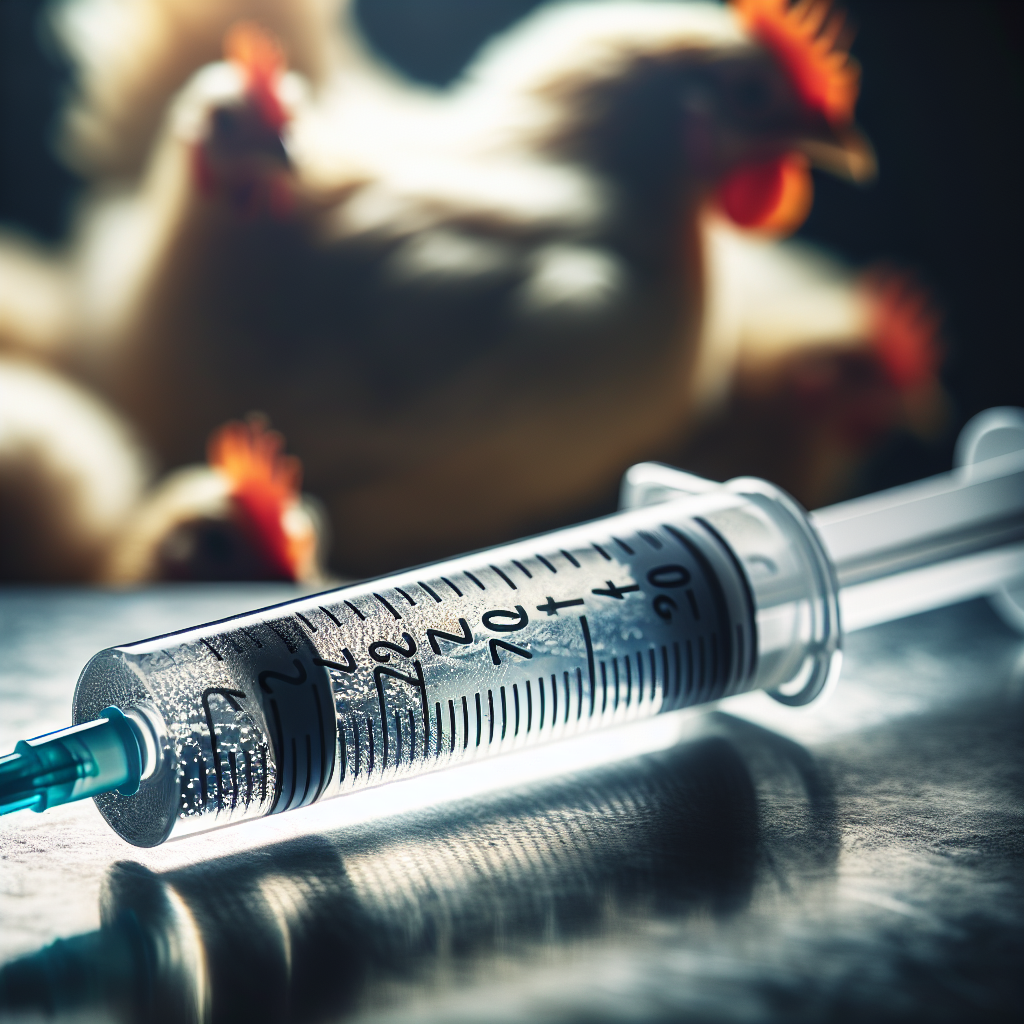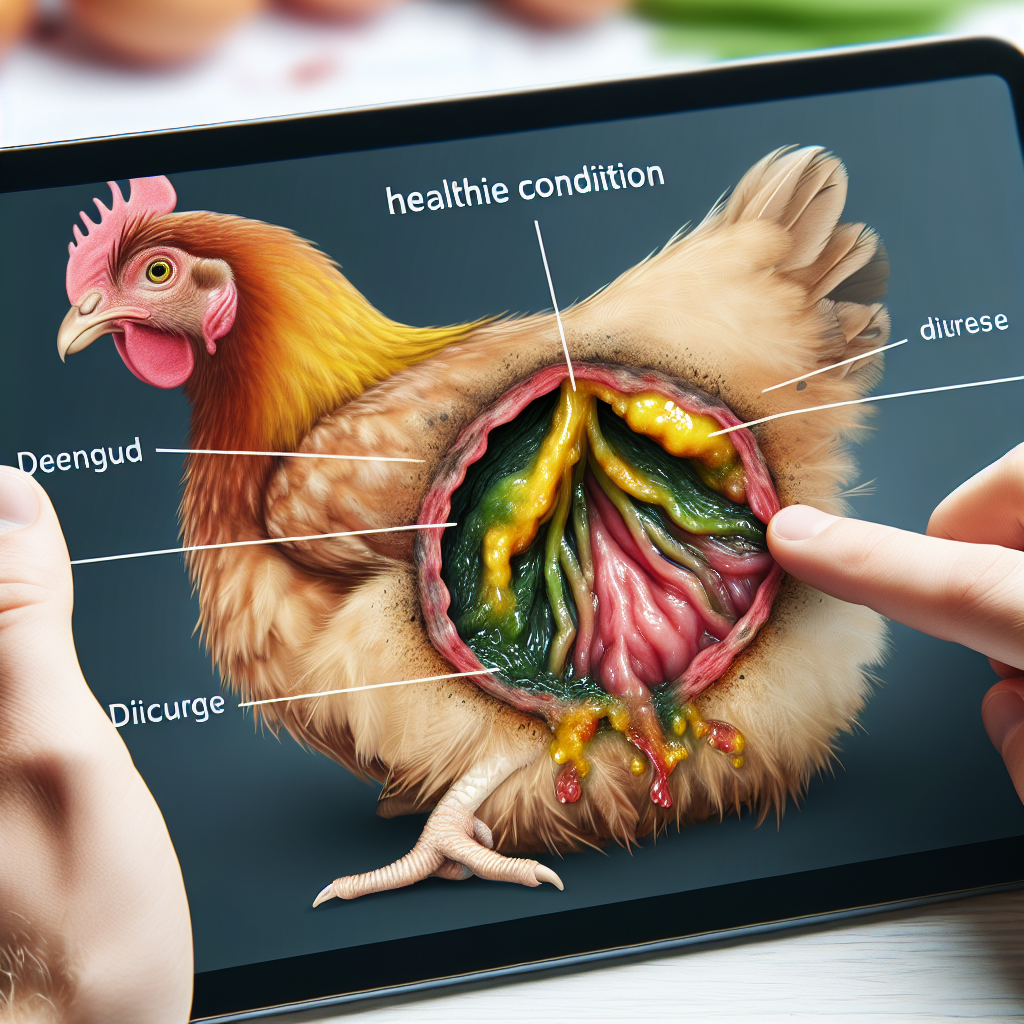If you’re a proud chicken owner, you may be wondering if there are any recommended antibiotics or medications to treat your feathered friends when they fall ill. It’s natural to want to provide the best care possible for your flock, but finding reliable information can sometimes be a challenge. In this article, we will explore the world of chicken healthcare, discussing whether there are any recommended antibiotics or medications that can help keep your chickens healthy and happy. Whether you’re a novice or experienced chicken keeper, this article aims to provide helpful insights and advice on the subject. So, let’s get started and ensure your chickens receive the care they deserve!
Antibiotics for Treating Sick Chickens
Types of Antibiotics
When it comes to treating sick chickens, antibiotics are often the go-to solution. Antibiotics are medications that are specifically designed to kill or inhibit the growth of bacteria. There are several types of antibiotics that can be used to treat bacterial infections in chickens. These include penicillins, tetracyclines, macrolides, sulfonamides, and fluoroquinolones, among others.
Commonly Used Antibiotics for Chickens
The choice of antibiotic for treating sick chickens depends on the specific bacterial infection and the recommendations of a poultry veterinarian. However, some commonly used antibiotics in poultry include oxytetracycline, amoxicillin, erythromycin, sulfamethazine, and enrofloxacin. Each antibiotic has its own spectrum of activity and is effective against certain types of bacteria. It is important to follow the veterinarian’s instructions and use antibiotics only as prescribed.
Administration of Antibiotics
Administering antibiotics to chickens can be done in different ways, depending on the specific antibiotic and the severity of the infection. Antibiotics are commonly administered orally, either through medicated water or by mixing the medication with the chicken’s feed. Some antibiotics may also be available in injectable form for more serious infections or when oral administration is not feasible.
Considerations for Antibiotic Use
While antibiotics can be effective in treating bacterial infections in chickens, it is important to use them responsibly and consider certain factors. Overuse or misuse of antibiotics can contribute to the development of antibiotic resistance, which poses a serious threat to both human and animal health. Therefore, it is crucial to follow proper dosage instructions, adhere to withdrawal periods, and only use antibiotics when necessary under the guidance of a veterinary professional.
Medications for Treating Sick Chickens
Non-Antibiotic Medications
In addition to antibiotics, there are also non-antibiotic medications available for treating sick chickens. These medications are used for various purposes such as pain relief, anti-inflammatory effects, parasite control, and supportive care. Non-antibiotic medications can play a complementary role in the treatment of certain conditions or when antibiotics are not warranted.
Commonly Used Non-Antibiotic Medications
Non-antibiotic medications commonly used in the treatment of sick chickens include analgesics (pain relievers), anti-inflammatory drugs, antiparasitics, probiotics, vitamins, and electrolyte solutions. These medications help alleviate symptoms, boost the immune system, promote healing, and provide supportive care during the recovery process. However, it is important to consult with a veterinarian before administering any non-antibiotic medication to ensure proper usage and dosage.
Administration of Medications
Non-antibiotic medications can be administered in various ways, depending on the specific medication and the condition being treated. Some medications may be given orally, either directly to the chicken or by mixing them with water or feed. Others may require injection or topical application. It is crucial to carefully follow the instructions provided by the veterinarian to ensure the medications are administered correctly and effectively.
Considerations for Medication Use
While non-antibiotic medications can be beneficial for treating sick chickens, it is essential to use them judiciously. Like antibiotics, overuse or misuse of non-antibiotic medications can lead to potential side effects and contribute to the development of resistance. It is important to consult with a veterinarian to determine the appropriate medication, dosage, and duration of treatment, and to closely monitor the chicken’s response to the medication.
Preventive Measures for Chicken Health
Vaccinations
Vaccinations are an important preventive measure to protect chickens from various diseases. Vaccines are available for diseases such as Newcastle disease, infectious bronchitis, Marek’s disease, and fowl pox, among others. Vaccination schedules and protocols may vary depending on the region and the specific poultry operation. Consulting with a poultry veterinarian is crucial to develop an effective vaccination program tailored to the specific needs of the flock.
Proper Nutrition
Proper nutrition plays a critical role in maintaining the overall health and immunity of chickens. A well-balanced diet ensures that chickens receive all the necessary nutrients to support their growth, immune function, and disease resistance. This includes providing a balanced mix of proteins, carbohydrates, fats, vitamins, and minerals. Consulting with a poultry nutritionist or veterinarian can help formulate a nutritionally optimal diet based on the specific requirements and goals of the flock.
Biosecurity Measures
Implementing and maintaining good biosecurity measures is essential for preventing the introduction and spread of diseases in a chicken flock. This includes practices such as limiting farm access, practicing strict hygiene, separating different age or production groups, and implementing proper sanitation protocols. Biosecurity helps minimize the risk of disease transmission from external sources, such as wild birds or contaminated equipment, and reduces the need for medical interventions.
Environmental Management
Creating a clean and healthy environment for chickens is crucial for their overall well-being and disease prevention. Proper ventilation, temperature control, and pest management help maintain optimal conditions and reduce stress on the birds. Regular cleaning and disinfection of housing, equipment, and water sources help minimize the presence of pathogens. Good litter management and appropriate waste management practices are also important to prevent the buildup of harmful microorganisms.
When to Seek Veterinary Assistance
Recognizing Common Chicken Health Issues
It is important for chicken keepers to be familiar with common chicken health issues in order to recognize signs of illness early on. Some common health issues in chickens include respiratory infections, digestive disorders, parasitic infestations, and viral diseases. By being observant and regularly monitoring the flock, you can detect any abnormalities or changes in behavior, appetite, or appearance that may indicate a potential health problem.
Signs of Illness in Chickens
Chickens can exhibit various signs of illness when they are not feeling well. These signs can include a decrease in appetite, lethargy, abnormal droppings, coughing or sneezing, lameness, discolored comb or wattles, weight loss, decreased egg production, or abnormal behavior. It is important to note that some signs can be nonspecific and may overlap with normal behaviors. Therefore, it is crucial to seek veterinary assistance to obtain an accurate diagnosis and appropriate treatment.
Consulting a Poultry Veterinarian
When faced with a sick chicken or a potential health issue, consulting a poultry veterinarian is the best course of action. Poultry veterinarians have the knowledge and expertise to accurately diagnose and treat various poultry diseases. They can provide guidance on appropriate treatment options, antibiotic usage, medication administration, supportive care, and overall flock management strategies. Timely veterinary intervention can greatly enhance the chances of successful treatment and recovery.
Laboratory Diagnostic Tests
In some cases, it may be necessary to conduct laboratory diagnostic tests to determine the cause of the illness in chickens. These tests can help identify the specific pathogen or confirm the presence of certain diseases. Common diagnostic tests for chickens include bacterial and viral culture, polymerase chain reaction (PCR), serology, fecal examinations, and necropsies. These tests provide valuable information to guide treatment decisions and implement appropriate biosecurity measures.
Understanding Antibiotic Resistance
The Problem of Antibiotic Resistance
Antibiotic resistance is a global health concern that affects both humans and animals. It occurs when bacteria develop the ability to withstand the effects of antibiotics, rendering them ineffective in treating bacterial infections. The overuse and misuse of antibiotics in both human medicine and animal agriculture have contributed to the spread of antibiotic-resistant bacteria. This poses a significant challenge in the treatment of infections and can lead to increased morbidity, mortality, and healthcare costs.
Impact on Poultry Industry
Antibiotic resistance has a profound impact on the poultry industry. Resistant bacteria can cause serious infections in chickens, leading to economic losses due to increased mortality, decreased production, and diminished product quality. In addition, the presence of antibiotic-resistant bacteria in poultry products can also pose a potential risk to human health through foodborne transmission. Therefore, addressing antibiotic resistance is crucial for the sustainability and welfare of the poultry industry.
Ways to Minimize Antibiotic Resistance
Minimizing antibiotic resistance requires a multifaceted approach that involves various stakeholders, including farmers, veterinarians, policymakers, and consumers. Some key strategies to minimize antibiotic resistance in poultry include practicing good biosecurity measures, implementing appropriate vaccination programs, promoting responsible antibiotic use, and improving overall flock management. It is also essential to raise awareness about the importance of antibiotic stewardship and the consequences of antibiotic misuse.
Alternative Solutions to Antibiotics
Due to the concerns surrounding antibiotic resistance, there is a growing interest in finding alternative solutions to antibiotics in poultry production. These alternatives include probiotics, prebiotics, herbal supplements, organic acids, bacteriophages, and antimicrobial peptides, among others. While these alternatives show promise, further research is needed to evaluate their efficacy, safety, feasibility, and cost-effectiveness in commercial poultry operations. It is crucial to ensure that any alternative solutions used are scientifically validated and comply with regulatory requirements.
Legal and Regulatory Considerations
Labeling and Prescription Requirements
In many countries, antibiotics are classified as prescription-only medications, meaning they can only be obtained with a prescription from a licensed veterinarian. This helps ensure that antibiotics are used appropriately and under professional guidance. Additionally, antibiotic medications often require proper labeling, including dosage instructions, withdrawal periods, and cautionary statements. It is important to adhere to these requirements to ensure legal compliance and promote responsible use.
Antibiotic Use Restrictions
Some countries have specific restrictions and regulations in place regarding antibiotic use in animal agriculture. These may include restrictions on certain antibiotics, limitations on dosage or administration routes, and prohibited use in certain animal production systems. It is essential to familiarize oneself with the local regulations and comply with any restrictions to prevent violations and potential legal consequences.
Withdrawal Periods
Withdrawal periods refer to the minimum period of time that must elapse between the last administration of an antibiotic and the slaughter or collection of eggs for human consumption. This ensures that any residue of the antibiotic in the animal’s body or eggs has sufficiently cleared, reducing the risk of antibiotic residues in the food chain. Adhering to withdrawal periods is crucial to protect consumer safety and comply with regulatory requirements.
Responsible Use Practices
Responsible antibiotic use in poultry production involves using antibiotics only when necessary, following dosage instructions, adhering to withdrawal periods, and implementing proper biosecurity and flock management practices. This helps minimize the emergence and spread of antibiotic-resistant bacteria and ensures the welfare of the animals. By adopting responsible use practices, poultry producers can contribute to the preservation of antibiotic efficacy and the sustainable future of poultry farming.
Common Diseases in Chickens
Respiratory Diseases
Respiratory diseases are common in chickens and can be caused by bacteria, viruses, or other pathogens. Some examples of respiratory diseases in chickens include infectious bronchitis, avian influenza, mycoplasmosis, and Newcastle disease. These diseases can cause symptoms such as coughing, sneezing, nasal discharge, wheezing, and respiratory distress. Proper diagnosis by a poultry veterinarian is crucial to identify the specific pathogen and implement appropriate treatment and prevention measures.
Digestive Diseases
Digestive diseases in chickens can result from various causes, including bacterial, viral, and parasitic infections, as well as dietary imbalances or toxicities. Examples of digestive diseases in poultry include coccidiosis, necrotic enteritis, infectious bursal disease, and salmonellosis. Affected chickens may exhibit symptoms such as diarrhea, decreased appetite, weight loss, and abnormal droppings. Prompt diagnosis and treatment are essential to minimize the impact of these diseases on flock health and productivity.
Parasitic Infections
Chickens can be affected by a wide range of internal and external parasites, including worms, mites, lice, and ticks. These parasites can cause various health issues and negatively impact the growth and productivity of the flock. Common parasitic infections in chickens include coccidiosis, gapeworm, red mite infestations, and scaly leg mites. Proper parasite control measures, such as regular deworming and implementing biosecurity practices, are essential for maintaining flock health and productivity.
Viral Diseases
Viral diseases can have a significant impact on poultry production and require effective prevention and control measures. Examples of viral diseases in chickens include Marek’s disease, infectious bronchitis, avian influenza, and chicken infectious anemia. These viral infections can lead to immunosuppression, decreased egg production, increased mortality, and impaired flock performance. Vaccination, biosecurity protocols, and strict hygiene practices are crucial in preventing and managing viral diseases in poultry.
Antibiotics and Medication Side Effects
Potential Side Effects of Antibiotics
Like any medication, antibiotics can have potential side effects in chickens. Common side effects may include diarrhea, decreased appetite, weight loss, gastrointestinal upset, and allergic reactions. Additionally, the use of antibiotics inappropriately or for prolonged periods can disrupt the natural balance of microorganisms in the chicken’s digestive system, potentially leading to secondary infections or antibiotic resistance. It is important to closely monitor chickens during antibiotic treatment and consult with a veterinarian if any adverse effects occur.
Possible Side Effects of Non-Antibiotic Medications
Non-antibiotic medications used in chickens may also have potential side effects, although these are generally less common. Some non-antibiotic medications, such as analgesics or anti-inflammatory drugs, can cause gastrointestinal irritation or kidney damage if used improperly or in excessive doses. Herbal supplements or natural remedies may also interact with other medications or have allergic or toxic effects in some individuals. It is crucial to consult with a veterinarian and follow proper dosing guidelines when using non-antibiotic medications.
Monitoring and Reporting Adverse Effects
When administering antibiotics or non-antibiotic medications to chickens, it is essential to monitor their response and watch for any potential adverse effects. This includes observing changes in behavior, appetite, or appearance, as well as keeping track of any unexpected reactions or complications. If any adverse effects are observed, it is important to report them to a veterinarian or the relevant regulatory authority. Timely reporting of adverse effects helps ensure the safety and efficacy of veterinary medications and supports ongoing surveillance programs.
Natural Remedies and Herbal Supplements
Benefits and Limitations
Natural remedies and herbal supplements are gaining popularity as alternative options for promoting health and preventing diseases in poultry. These remedies are derived from various plant-based ingredients and may offer certain benefits, such as supporting the immune system, improving gut health, reducing stress, and acting as natural antimicrobials. However, it is important to note that natural remedies have their limitations and may not be as extensively studied or regulated as conventional medications. Scientific validation and the consultation of a veterinarian are crucial when considering the use of natural remedies.
Examples of Natural Remedies
There are various natural remedies and herbal supplements that are commonly used in poultry production. Some examples include garlic, oregano extract, grapefruit seed extract, apple cider vinegar, and probiotics. These natural additives are often used in feed or water to provide potential health benefits and support the well-being of the flock. However, it is important to understand that the efficacy, safety, and appropriate dosages of natural remedies may vary. Consulting with a veterinarian or poultry nutritionist can provide guidance on the specific use and dosage of natural remedies.
Safety and Efficacy Considerations
When considering the use of natural remedies or herbal supplements in chickens, safety and efficacy should be carefully evaluated. Natural does not always mean safe, and plant-based compounds can also have potential adverse effects or interactions with other medications. It is important to select products from reputable sources, ensuring they have undergone quality control testing and comply with regulatory requirements. Scientific studies and research can provide insights into the safety and efficacy of specific natural remedies, serving as a foundation for informed decision-making in poultry health management.
Local Regulations and Availability
Country-Specific Regulations
Regulations regarding the use of antibiotics and medications in poultry production can vary from country to country. It is essential for poultry keepers to familiarize themselves with the specific regulations, restrictions, and requirements in their respective regions. This includes understanding which antibiotics are approved for use, the conditions for prescription and dispensing, withdrawal periods, and any specific labeling or reporting obligations. Compliance with local regulations ensures legal and responsible practices in the use of antibiotics and medications.
Availability of Antibiotics and Medications
The availability of antibiotics and medications can vary depending on the location and local regulations. Some medications may require a prescription from a licensed veterinarian, while others may be available over the counter. Additionally, certain antibiotics or medications may have limited availability due to factors such as supply chain constraints or specific import or distribution restrictions. Ensuring a reliable supply of quality medications is essential for timely and effective treatment of sick chickens.
Working with Local Veterinary Professionals
When it comes to the health and medical management of chickens, working closely with local veterinary professionals is crucial. Poultry veterinarians have the expertise and knowledge to provide guidance on disease prevention, treatment options, medication selection, and overall flock health management. They can also provide valuable insights into local regulations and best practices. Establishing a good working relationship with a poultry veterinarian ensures access to expert advice and timely assistance when needed.
Import and Export Restrictions
Import and export restrictions can impact the availability of antibiotics and medications for treating sick chickens. Different countries may have specific requirements, permits, or limitations on the importation or exportation of certain medications. These restrictions can be in place to prevent the spread of diseases, control the use of certain antibiotics, or ensure the safety and quality of imported or exported products. Poultry keepers should be aware of these restrictions and comply with any applicable regulations to maintain the health and welfare of their chickens.




